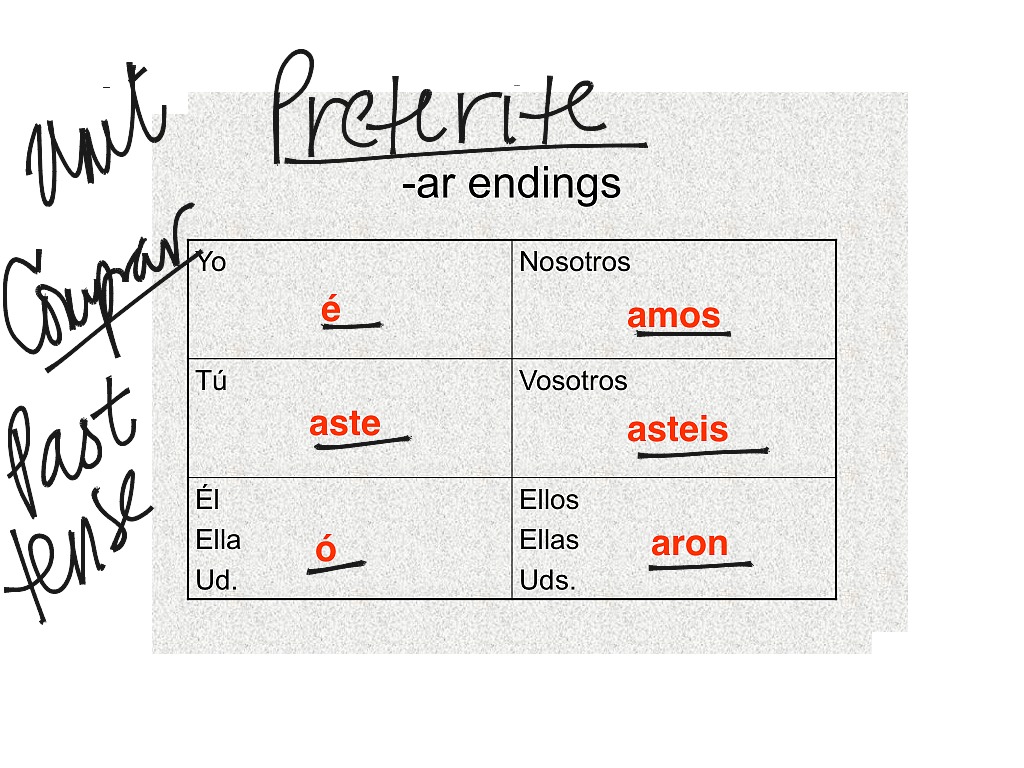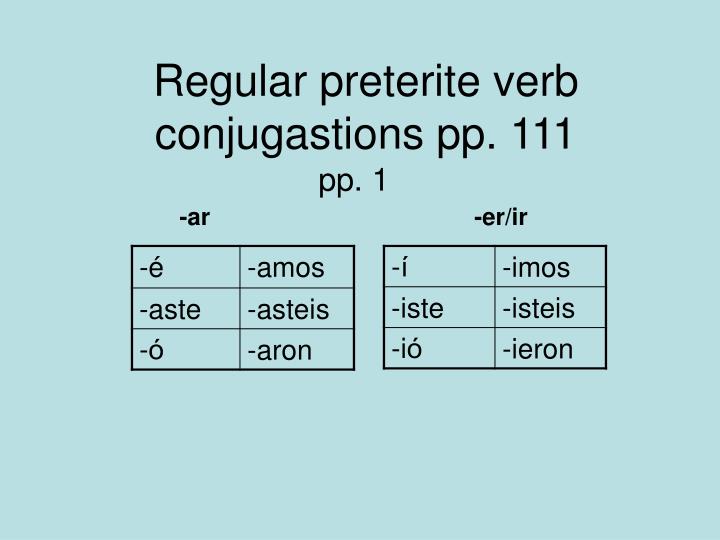
In this example, trabajé is the preterite conjugation of the regular verb trabajar for the first-person singular yo (I). 1: Perfecto simple o Indefinido Play Caption
#Preterite endings ir series
Let's look at an example from the series where our friend Carlos talks about this tense:Ĭaption 30, Carlos explica - El pretérito Cap. In very simple terms, when we talk about the Spanish preterite tense, we are talking about the simple past, in other words, a completed action that took place at a determined point in the past. BANNER PLACEHOLDER The Preterite Tense in Spanish But first, let's review the main idea behind the preterite tense in Spanish.
#Preterite endings ir how to
In particular, let's see how to form the preterite conjugation of regular verbs ending in - ar, - er, and - ir. Juan podía participar en la manifestación.Let's talk about the Spanish conjugation of regular verbs. This is not surprising, since the difference in meaning can be traced back to the different way in which these two past tenses are used.Įn aquella época conocíamos muy bien la ciudad. Some verbs actually change meaning, depending upon whether they are used in the preterite or the imperfect. Here are the verbs, along with their corresponding stem changes: Infinitive The pattern is that while their stems change, they all take the following endings: There are a number of verbs that are irregular in the preterite that follow a particular pattern. Verbs that end in -ucir are irregular and conjugated as follows: Here are three more verbs that are irregular in the preterite: decir Verbs that end in -aer, -eer, -oír, -oer, and uir change ió to yó and ieron to yeron.There are a number of orthographic changing verbs in the preterite: They change e:i and o:u in the third person, singular and plural. ir verbs that change their stem in the present tense do change in the preterite, but in a different way. They are conjugated just like other regular preterite verbs. ar and -er verbs that change their stem in the present tense do not change in the preterite. Other words and phrases indicate repetitive, vague or non-specific time frames, and therefore signal the use of the imperfect. Hace dos días, años (two days, years ago) Some words and phrases indicate specific time frames, and therefore signal the use of the preterite.ĭesde el primer momento (from the first moment) There are only three irregular verbs in the imperfect: ser Note: This is not a typo ser and ir do have identical conjugations in the preterite! Ser, ir, dar and hacer are irregular in the preterite: ser To describe the characteristics of people, things or conditions.For actions that “set the stage” for another past action.For actions that were repeated habitually.The imperfect is used in the following situations:




 0 kommentar(er)
0 kommentar(er)
